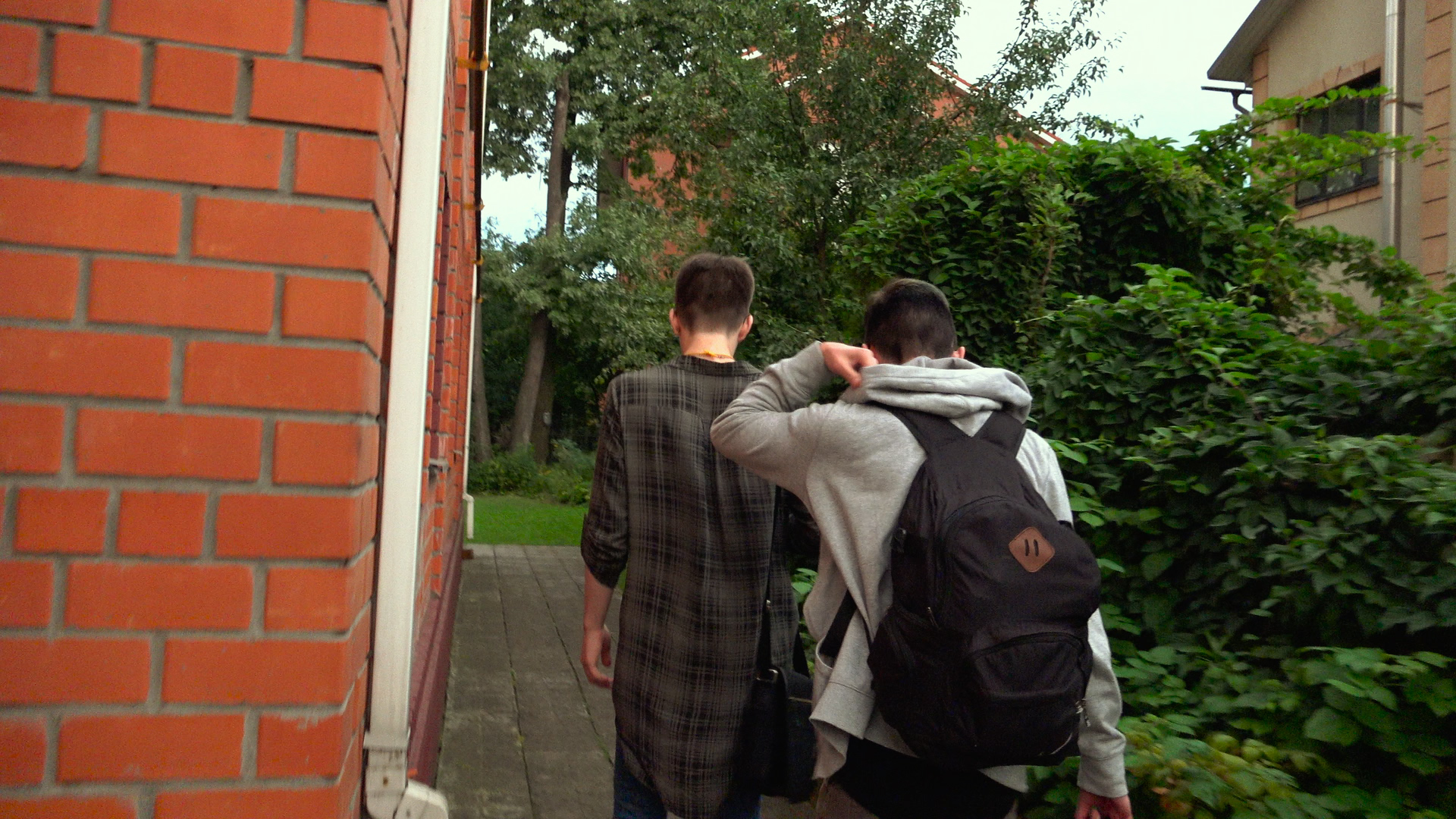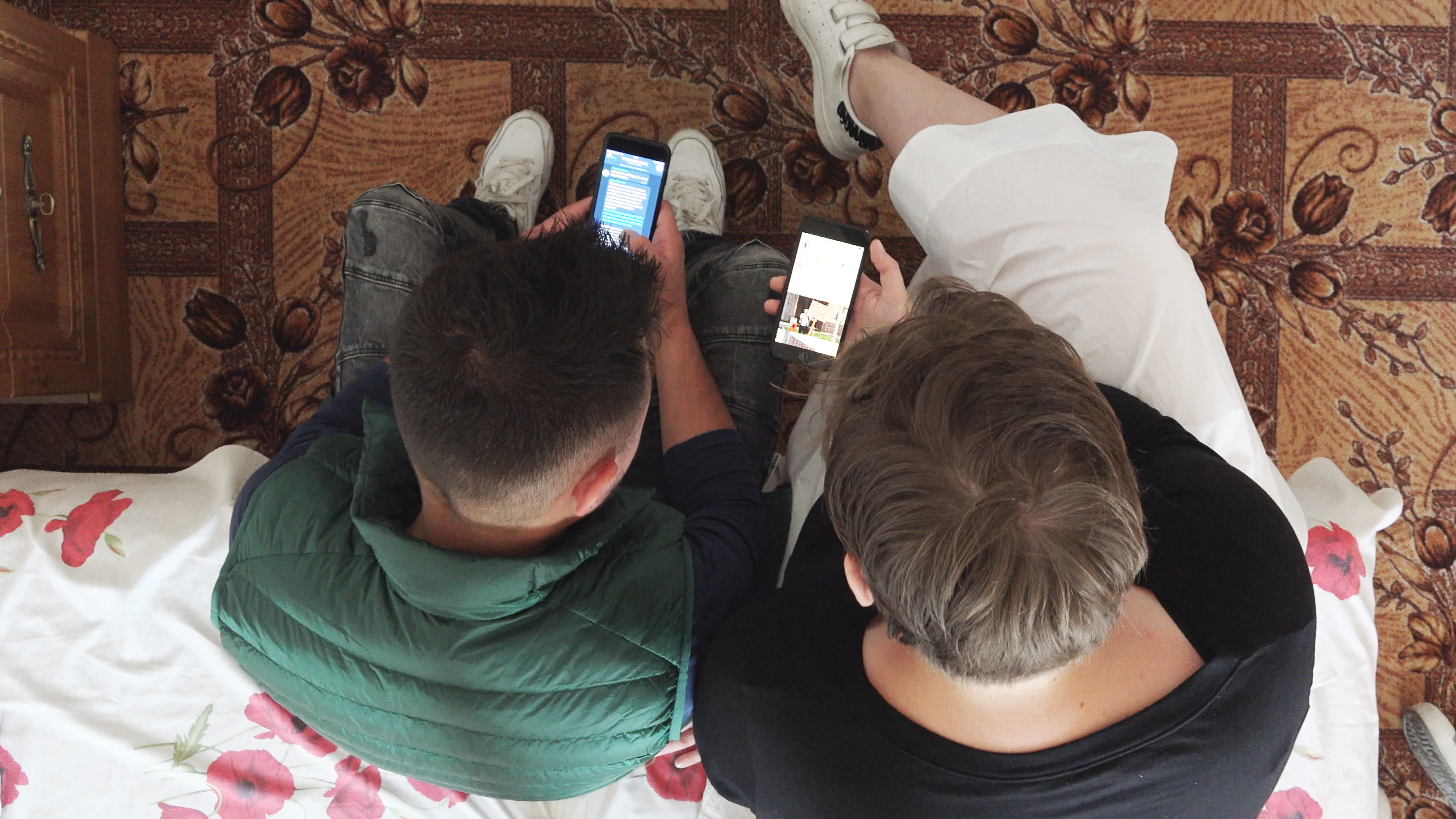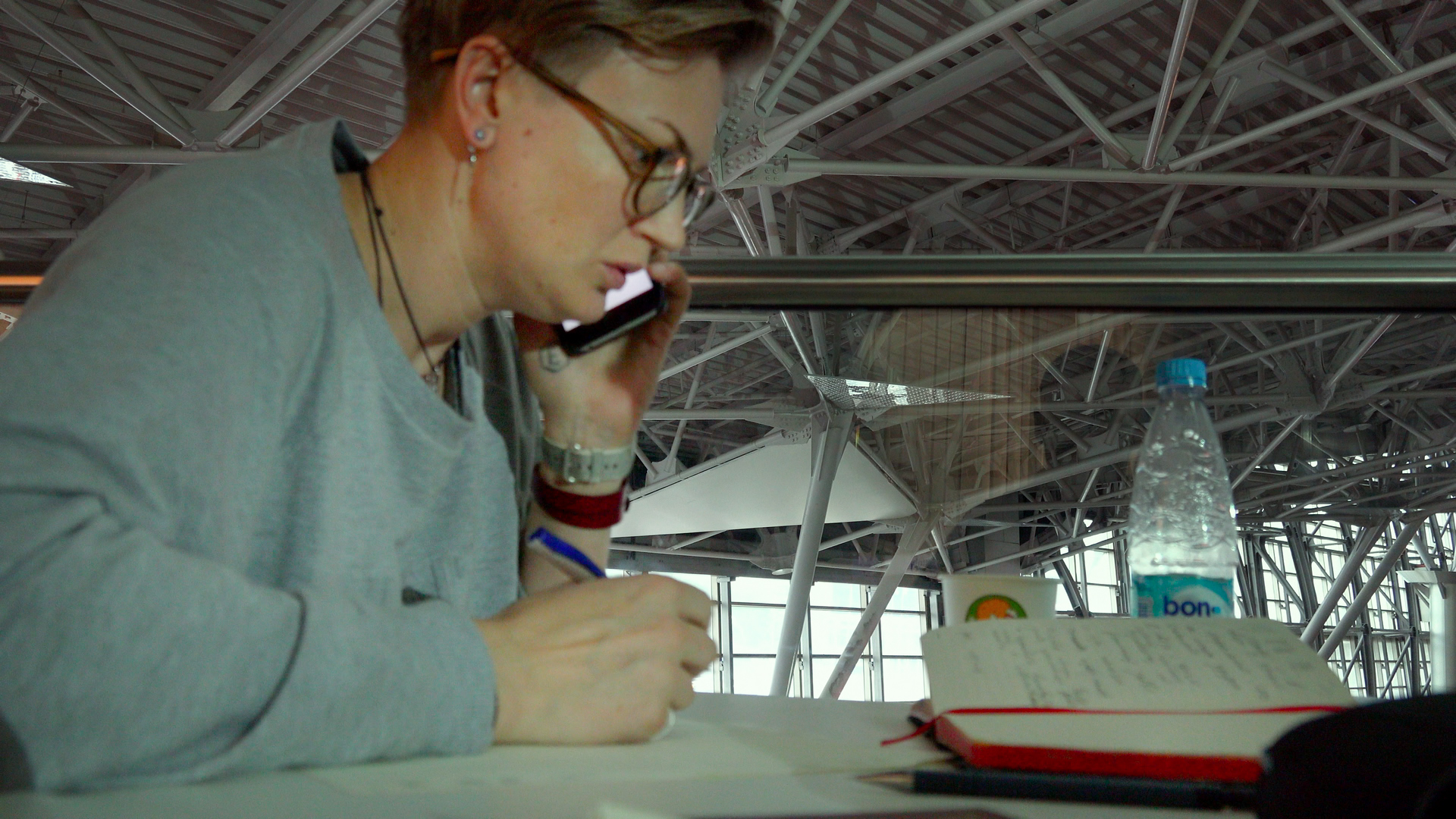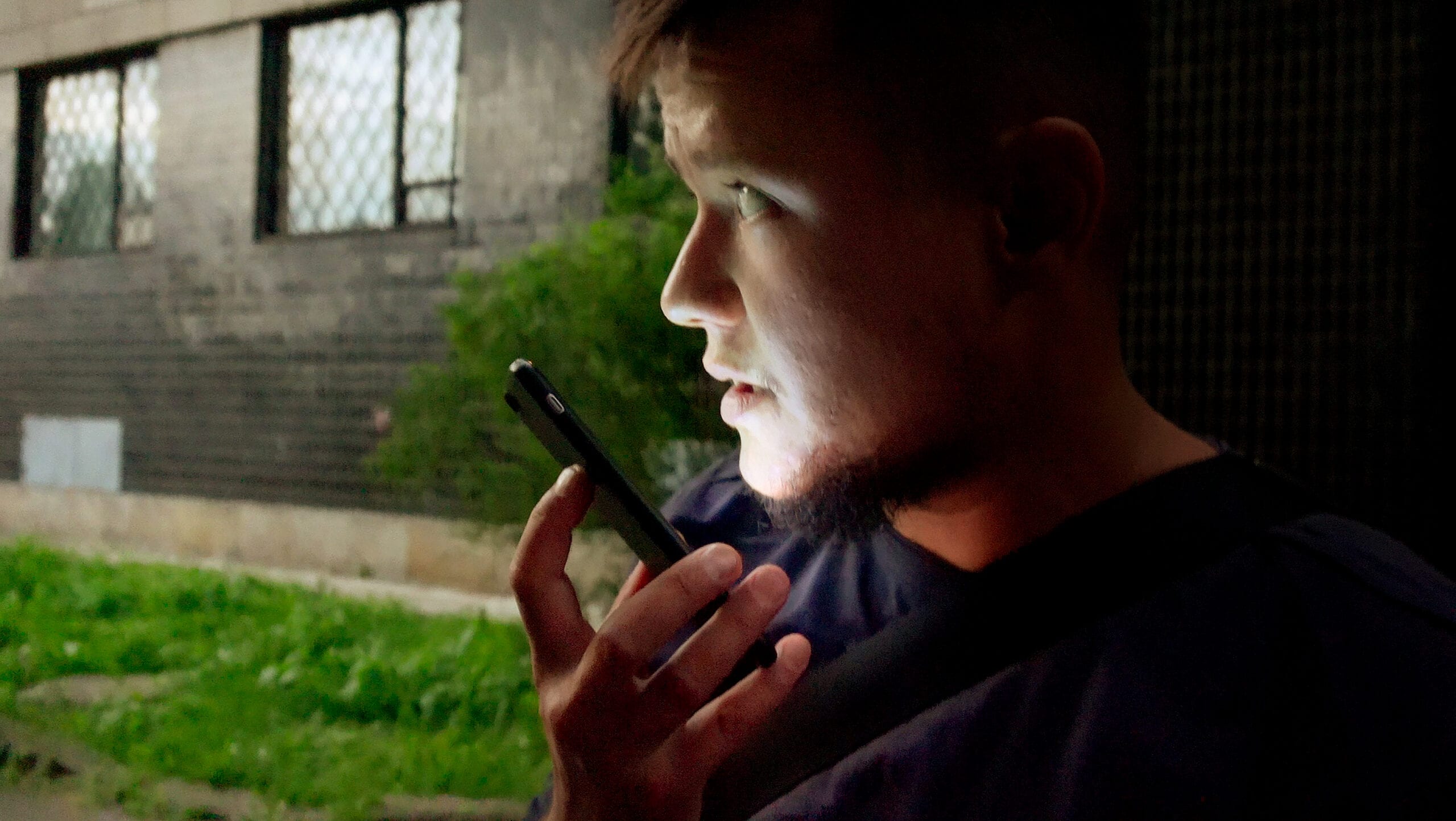Three intimidating figures surround two men who have just been pulled out of a car. The horror on their faces is softly illuminated by the glow of a streetlamp.
“Tell us what you were doing!” one of the men says. The moment is being captured by a smartphone, the video rendered shaky and grainy.
The assailants grab one of the men by his jacket, holding him in the air. “Were you kissing him?” they ask in Russian. No response is given.
After some rough interrogation, the other man anxiously says the man tried to kiss him. The primary interrogator turns to the accused, who fervently denies the claim. But it’s too late.
“Let me punch that thing in the face,” cries the interrogator. “We are going to kill you.”
The camera drops to the ground, cutting off the video. An altercation can be heard as the documentary’s title card flashes across the screen: “Welcome to Chechnya.”
Chechnya, a small puppet republic of the Russian Federation, has been at the epicentre of one of the most appalling yet secretive human rights atrocities of the last decade. The Chechnyan government has been kidnapping, torturing and disappearing queer men and women on a consistent basis since 2017. Victims are often offered an ultimatum: be imprisoned and face torture, or give away the identities of other queer people and walk free. Despite overwhelming evidence to the contrary, the Chechnyan government flat-out denies that the so-called anti-gay purge is happening. In a 2017 interview, the Kremlin-appointed leader of Chechnya, Ramzan Kadyrov, publicly said the accusations are “nonsense.”
“We don’t have gays,” Kadyrov said. “To purify our blood, if there are any, take them.”
Welcome to Chechnya, a new HBO documentary that premieres today, sheds a light on the horrifying hate crimes and human rights atrocities quietly taking place in the country. It follows a number of gay refugees trying desperately to escape, as well as some of the activists who support them. Xtra spoke with Neal Baer, an executive producer of the documentary, about why the world’s attention must turn to Chechnya.

Young men at a shelter Credit: Courtesy of HBO
In North America, we’re celebrating the 50th anniversary of the very first Pride parades. Where does this documentary fit into our celebrations and protests?
The 50th anniversary of Pride signifies how far we’ve come but also how far we still have to go. And that certainly relates to the genocide of LGBTQ people in Chechnya. This is a story that hasn’t received enough attention worldwide. It’s a story that needs to be told so that we can raise our voices in a prideful way to stop the state-sanctioned murder and torture of people who are singled out for loving people that are not approved by the president of Chechnya.
This documentary includes a number of extremely graphic videos of hate crimes, and of an attempted suicide. Why did you include them?
There’s a tendency among people to not believe what’s going on. And, unfortunately, we need the graphic evidence to illustrate what’s going on, to emotionally move people to take action. We’ve seen this with genocide through history: with the Holocaust, Bosnia, Rwanda. Unfortunately, people need evidence. It’s very hard to take, but it can’t be unseen; I think it’s important that these atrocities not be unseen.
To that point, one of the really compelling elements of this documentary is the employment of deep fake technology. All of the gay refugees who were documented had their faces digitally altered. Why was this used instead of simply concealing their faces?
Because we have the technology, and we have the volunteers who gave their faces to protect these people. [It] makes the emotional power of this film more direct. I think when you put them in the dark, there’s a difference in quality. [This way] we see a human face. I think it’s more impactful. And it was done to protect these people, because there’s a Chechen diaspora where they have been encouraged by the government to weed out these people wherever they are. They had to be protected. Their identities had to be concealed.

Credit: Courtesy of HBO
Maybe this is an overreach but, to me, the popular narrative about the gay purge happening in Chechnya is that it’s really only affecting gay men. But one of the primary subjects of the documentary, Anya, is a queer woman. Why was it important that the struggles of Chechen queer women be highlighted in this documentary?
Anya was threatened by her uncle with being outed to her family, with terrifying consequences, if she didn’t sleep with him. Women in Chechnya are often very protected by men. It’s much harder for a woman to be separated from her father and family in order to escape. Their struggle to get out is even more difficult because of the way women are treated there. It’s a very tough thing to get queer men out, and possibly even harder to get queer women out.
So much of this documentary is about the toll on the activists who are attempting to get these people out of the country. How do the stories of these activists figure into the larger story of what’s going on in Chechnya?
The activists are incredibly brave people who risk their own lives and their careers—as we see in the film with Olga, who ultimately had to leave Russia. It is a story of both the activists and the refugees and their relationships with each other. And we learn a bit about their own stories that motivated them to take on this role. Olga was in advertising and had a great job. In Russia, LGBTQ laws were loosening and there was more acceptance. I think that motivated her to get involved in organizing escapes. She had to stand up for what she saw going on in Russia.

Olga Baranova Credit: Courtesy of HBO
This is a very dark documentary. It’s extremely intense—it’s a tough watch. But I was really struck by how many moments of love and levity were peppered throughout.
It’s not unrelentingly sad at all. It’s very hopeful because these queer people get out and they can start lives, as tough as it is. They’re giving up their friends [and] their family to have a life that expresses who they are. I think that is a great message—that things can change. Things need to change in Chechnya, unquestionably, but there are a number of people who have gotten out. They are an example of why we need to support Pride for the next 50 years. We just passed [a law in the U.S.] where you can’t discriminate against people on the basis of their being LGBTQ2 in employment in 2020. But there are 72 countries that have laws against being gay. This is a movie that I hope springboards discussion about all of these countries in the world that still discriminate and violently kill people for who they are.
I think that this is a really moving documentary that will inspire a lot of people to act. But how can people like you and me, who are living on another continent, be better allies to this cause?
I have a platform called ActionLab; we give you concrete actions to take, like how to support Maxim—one of the people in the film who is involved in a legal case in Russia where he’s taking on the system—or supporting LGBTQ organizations in Moscow. I call it bridging the gap between inspiration and action. When you see what happens and you feel powerless, well, we have ways that you can take action.
You and David France, the director, are both members of the LGBTQ2 community. Why is it important for queer people to helm stories like this?
They are the ones who have had a range of experiences of discrimination. So we can’t rely on other people to tell our stories.
What key points are you hoping audiences take away from this movie?
It’s an eye-opening film about what’s going on in the world in 2020, particularly in Chechnya, at a time when we often think that things are not so bad. But things are really bad, and we need to stand up and talk about it and demand that it changes to protect people’s lives.
This interview has been edited and condensed for clarity.


 Why you can trust Xtra
Why you can trust Xtra


